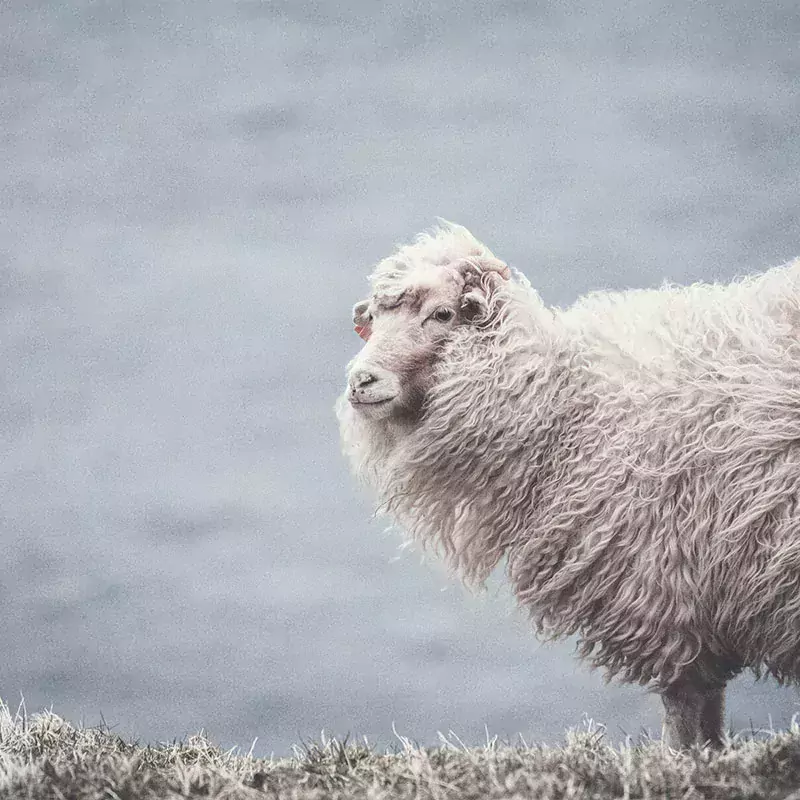Mulesing and mulesing-free wool
Mulesing and mulesing-free wool

We begin this section dedicated to in-depth analysis of the themes dear to CAMCO with a crude topic, which we will attempt to deal with synthetically without exceeding the description of the most brutal aspects.
Maybe it’s not the best of beginnings, because our thoughts are always aimed at a positive approach to an active and peaceful life in the open air in harmony with nature, but the reality is that even before founding the brand and giving life to the project of an activewear clothing line, we looked for suppliers of a merino wool that was mulesing-free and the continuation of the business idea was linked to the success of this search: “no mulesing-free, no CAMCO”.
What is mulesing
Mulesing is a “surgical” practice codified by the Australian John W. H. Mules, who lived between the 19th and 20th centuries. It is practiced on lambs aged between 2 and 10 weeks of life and the aim is to make a large area around/under the tail smoother and with less wool, where humidity and urine stagnation attract flies of the Lucilia Cuprina species .
Merino sheep are characterized by wrinkled skin, which increases the quantity of wool produced for the same size as the same sheep with smooth skin. Mulesing, through the use of sharp shears and metal cages, allows the skin to be removed in the area described and the scar tissue that remains after the operation (weeks after the operation, when the skin has regenerated) is smoother and with less wool, partially eliminating the habitat sought by the Lucilia Cuprina fly to lay its eggs. Eggs that hatch, releasing larvae that burrow into the sheep’s meat and begin to feed on it.
Mulesing is generally carried out without prior administration of anesthetics or painkillers and without subsequent antibiotic therapy. Even when a painkiller is sprayed on the newly “treated” part, the effect of this is generally 8 hours, while the pain from the operation lasts for 72 hours, in which the lamb shows atypical behavior – it remains still, with his head lowered and his nose almost touching the ground, back curved and body contracted, before launching into short runs. The memory of the pain remains alive for over a month, a period in which it avoids the man and especially the one who carried out the operation.
It should be underlined that this practice does not save the sheep from being victims of this fly, especially in the period following the operation, in which the living flesh is exposed – and then there is also a risk of other infections in general. Obviously the parts not affected by mulesing remain potentially attackable by the fly, despite having less appeal for it.
The alternative: mulesing-free wool
Mulesing is still widespread in Australia, by far the largest producer of merino wool, while it is banned in New Zealand and South Africa. Australia is therefore the only country where mulesing is practiced. The use of insecticides could help control the fly population, but with obvious disadvantages for the environment, the animals and the wool itself. The alternative should be to use better breeding practices, with adequate diets and provide for the cleanliness of the animals.
The basic fact remains that Merino sheep have a skin with many folds and a significant amount of wool, which can often lead to collapse or death from heat stroke in the hot months.
Perhaps the merino breed is not the most suitable for a humid climate like that of the areas where there is a risk of infection by the Lucilia Cuprina fly.
From this point of view, Argentine wool is by nature mulesing-free. The cold and dry pastures of Patagonia do not allow the proliferation of many parasites and bacteria and the infamous fly has never existed here, as the conditions for its proliferation absolutely do not exist. Consequently, mulesing does not exist and has never existed in Argentina.
